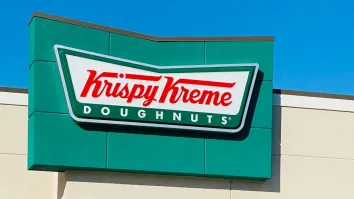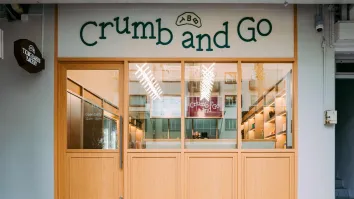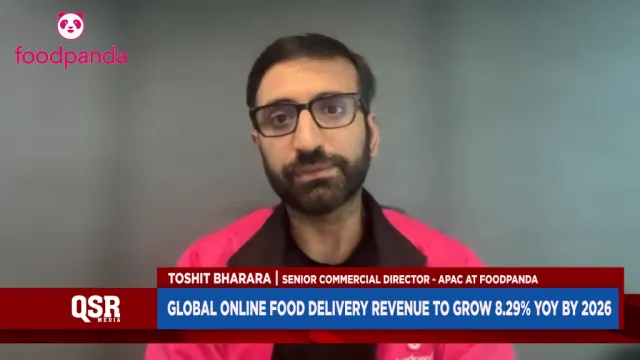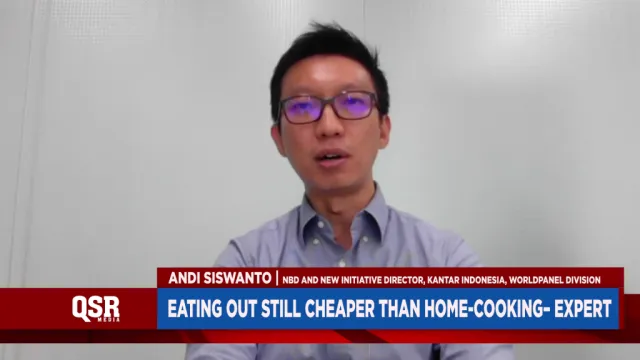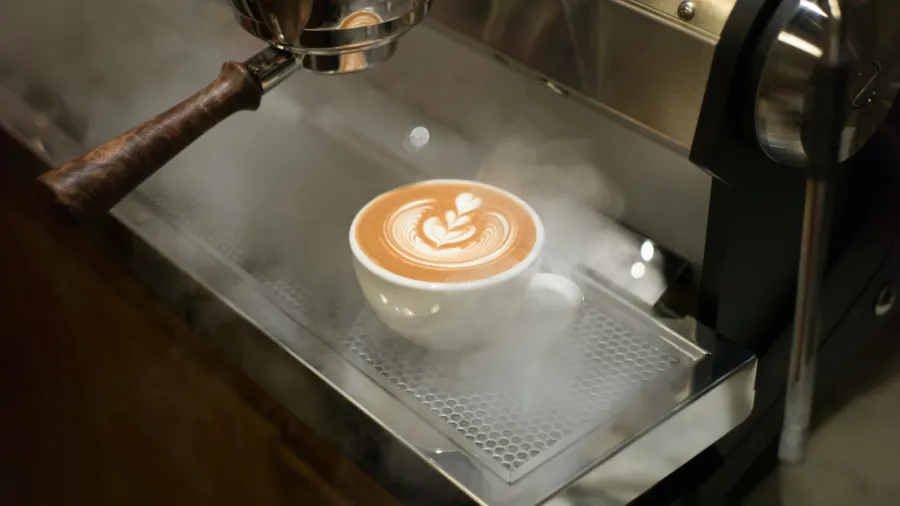
How is Singapore’s coffee drinking habits changing amidst rising prices?
31% have said they are ordering less and have started brewing their own coffee.
Singaporean consumers have started to reduce spending on their coffee, trading down, or even just started brewing their coffee as many have felt the rise in prices.
A report by YouGov analysed the coffee-drinking habits of Singaporeans. It was revealed that regular coffee drinkers are the majority of consumers in Singapore. Almost eight in ten (79%) consume the beverage once a month or more, with three in five (58%) doing so daily.
Across age cohorts, Gen Z (59%) stands out as significantly less likely to be regular coffee drinkers compared to Millennials (79%), Gen X (85%) and Baby Boomers (83%).
Leading coffee brands
When regular coffee drinkers in Singapore – defined as consumers who imbibe the beverage once to multiple times a month – were asked to indicate where they typically buy their cuppa from, homegrown coffee stall Ya Kun Kaya Toast emerged as the most popular coffee chain that almost two in five (39%) pointed to.
Meanwhile, American coffeehouse chain Starbucks and local coffee chain Toast Box (owned by food and beverage corporation BreadTalk Group) are next most popular, enjoying the support of over a third (both 35%) of regular coffee drinkers – ahead of about a quarter (26%) for US-headquartered The Coffee Bean & Tea Leaf.
The next most popular coffee stores trail some distance away, with traditional coffee chain Fun Toast (formerly Kheng Nam Hong) and China-headquartered Luckin Coffee attracting a sixth of regular coffee drinkers (16%), followed by Killiney Kopitiam (15%) and Heavenly Wang (13%).
Feeling the pinch
When asked to reflect on their coffee spending at cafés and grocery stores over the past few months, most regular coffee drinkers in Singapore say prices have risen.
Almost three-quarters (73%) say ordering the beverage from coffee shops is now more costly, with two in five (39%) saying prices have increased by a lot.
Across the top 10 coffee chains most frequented by regular coffee drinkers, a clear majority of customers say prices of their usual coffee orders have increased in the past few months.
Interestingly, customers of local chains like Heavenly Wang, Huggs (83%) and Ya Kun Kaya Toast (81%) were relatively most likely to say that prices of their usual orders have increased in the past few months. Meanwhile, customers of international chains Starbucks (78%), % Arabica (77%) and Luckin Coffee (74%) were relatively least likely to say so.
Notably, customers of traditional coffee chains – which sell more affordably priced beverages compared to modern coffeehouses – are most likely to say prices of their coffee orders have increased by a lot: Heavenly Wang (54%), Ya Kun, Fun Toast, Killiney Kopitiam (all 46%) and Toast Box (45%).
In response to the high, almost a third of consumers who indicate their usual coffee purchases have grown more costly in recent months say they have ordered less from cafés and coffee joints and brewed their own cuppa more (31%), whilst a quarter have considerably reduced their overall coffee consumption altogether (26%).
Around a quarter of consumers have started buying more from cheaper brands/versions of coffee beans/grounds/bottled drinks when grocery shopping (24%), whilst a fifth now switch to buying more from coffee joints with lower prices (20%).
Meanwhile, a tenth have continued to stick with their usual coffee joints but are opting for coffee drinks lower down the price range (10%) – while 4% have largely switched from coffee to other beverages.
On the other hand, about a quarter (27%) of consumers have not changed their coffee-drinking habits in response to a rise in coffee prices.
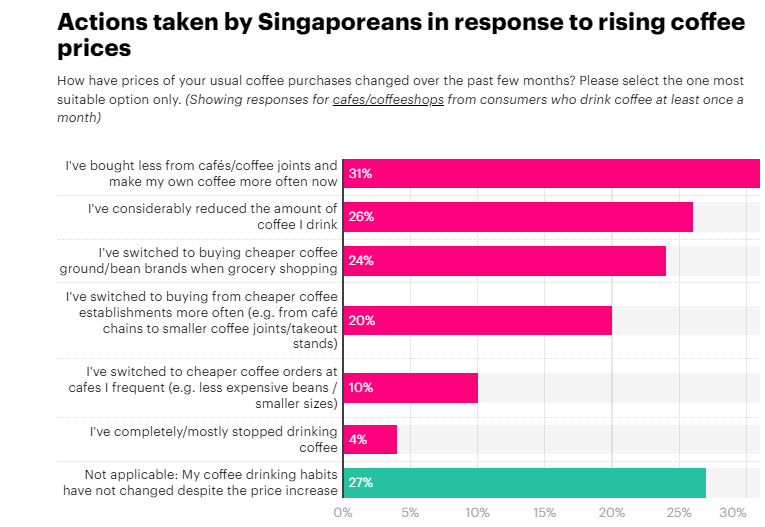
YouGov's study was conducted online in July 2024, with a national sample of 1,064 Singapore residents, using a questionnaire designed by YouGov. Data figures have been weighted by age, gender, and ethnicity to be representative of all adults in Singapore (18 years or older), and reflect the latest Singapore Department of Statistics (DOS) estimates.



